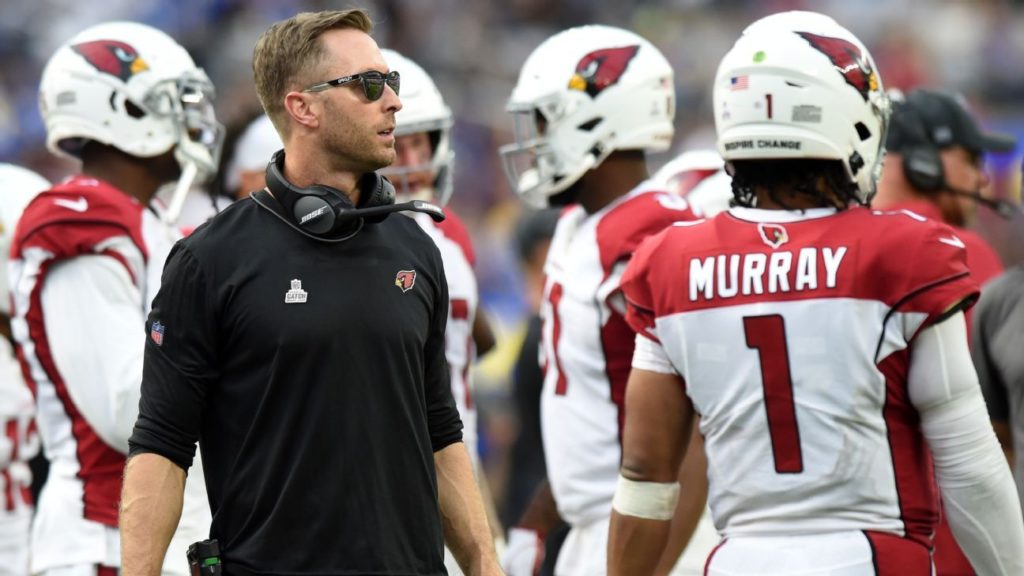Next, Brian Kelly left Notre Dame for LSU, signing a 10-year, $95 million deal with additional incentives bringing the maximum value of the deal north of nine figures.
Throw in the 10-year, $95 million contract former Jaguars assistant Mel Tucker signed with Michigan State, and the 10-year, $85 million extension James Franklin inked at Penn State in November, and you have a shifting landscape at the top of the college football market.
Oklahoma felt like it had a reasonable chance at hiring the coach of the NFL team with the best record in the league and a viable shot at making it to the Super Bowl.
Twenty years ago, there wouldn’t have been any realistic chance of the coach of a great team leaving for a college job.
While we know what college coaches are getting paid at public universities and salary reports often leak for coaches at private institutions, NFL coaching salaries aren’t made widely available.
The middle tier of NFL coaches is right in line with the average annual salary for new deals being handed out to Cristobal and Kelly, with salaries coming in between $8 million and $10 million per season.
While a third tier of coaches is believed to be in the $10 million to $15 million range, the Patriots’ longtime boss’ rumored compensation comes in north of $15 million and could be as high as $25 million per year.
If the NFL grosses $15 billion per year after its new TV deals kick in and the league grows more comfortable with gambling companies, that number for a good coach would be closer to $24 million per season.
Given that coach compensation isn’t part of the salary cap and they don’t get injured or age at the same rate as players, you could make a strong case that Belichick is worth something closer to $40 million per season.
Other colleges can’t pay as much as USC did for Riley or LSU did for Kelly, but these moves are likely to raise the cost of coaching across the board.
At the time, Moore was popularly linked to the head-coaching job at Boise State, where Andy Avalos ended up taking a five-year deal for $7.75 million for an average of $1.6 million per season.
Coaches sign extensions on those deals to avoid getting into lame-duck years, but those typically just restore or maintain the length of the initial deals.
Weis’ deal might have been more of an outlier at the time, but we’ve seen multiple coaches get deals in the eight- to 10-year range at the college level over the past few months.
College agreements aren’t as iron-clad as pro deals, as we’ve seen from this recent set of moves.
NFL head coaches aren’t allowed to leave for other teams. Moves from one job to another have happened in the past, like when Belichick left the Jets for the Patriots and the Bucs traded with the Raiders to acquire Gruden, but those deals required significant compensation, mediation and the approval of all parties involved.
The other difference is that NFL coaching contracts are generally fully guaranteed, meaning that teams are on the hook for paying the remainder of their coach’s contract in full if they fire the coach for performance reasons.
Other coaches have predetermined buyouts in their contracts, which often reduce as the coach goes through his deal and amount to less than the full value of the contract.
Even if he gets fired without winning a national title, the school would owe him 90% of what’s left on his deal, which could amount to tens of millions of dollars.
If college coaches can get eight-year deals that are fully guaranteed, NFL teams are going to need to match those terms or run the risk of losing those coaches to colleges.
Owners could still fire their coaches, but it’s a lot easier to let go of a coach who has two years and $14 million left on his deal than one who has five years and $50 million remaining.
If the money and contract length are relatively equal, the other factors determining whether a coach prefers a college or NFL job probably depend on the individual and the opportunity available.
Coaches at lower-level schools might be kept away from top-tier talent in a way that subpar NFL teams are not by the draft, but the best coaches in the business are pretty confident in their abilities.
On the other hand, while it was once more common for coaches to have personnel control at the NFL level, most are typically ceding the duty of “shopping for the groceries” to a general manager.
Riley was on the shortlist for virtually every opening that has popped up over the past few years and likely would have been able to walk into any of the jobs that are going to come available this offseason.
